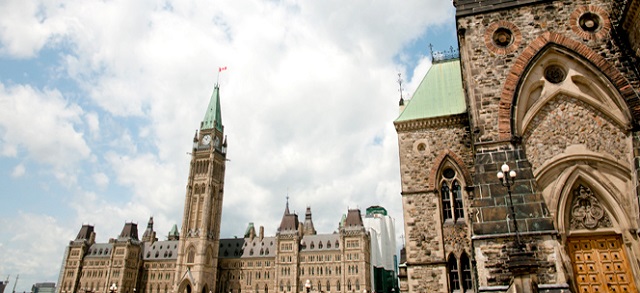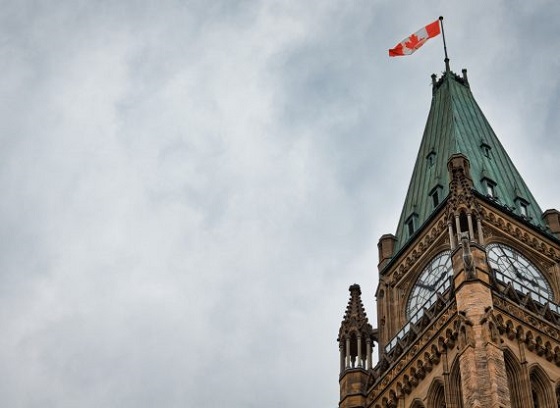Business
Vanishing lines and fading logic

From Resource Works
Canada’s road paint rules are fading fast—along with public patience
The short paint story that’s actually a big deal
Across Canada, road crews are repainting more often, spending more taxpayer money, and—ironically—emitting more carbon. Why? Because of a federal regulation aimed at reducing volatile organic compounds (VOCs) in traffic paint. The change sounds technical, even trivial. It’s not.
In warm months—from May 1 to October 15—Canadian regulations now cap VOC content in road marking paint at 150 g/L, down from 450 g/L the rest of the year. The reason? To reduce smog formation during periods of high air pollution risk.
But the real-world consequences are showing up fast. Paint doesn’t last. Lines fade. And in rural areas without streetlights, that’s not a minor annoyance—it’s a serious hazard.
This isn’t just a quirky tale of bureaucratic overreach. It’s part of a larger pattern where well-intentioned environmental policy drifts into untested technocracy—implemented with little transparency, consultation, or regard for operational impact.
Municipal leaders, from Halton Hills to Brazeau County, are speaking up. First responders and firefighters are reporting crashes tied to disappearing lane markings. Yet the federal stance remains firm: the air must be cleaned—whether or not the paint adheres.
And here’s the kicker. These seasonal VOC limits? They’ve been in place since 2012 under the Canadian Environmental Protection Act. But what’s new is a 2023 proposal to tighten VOC limits even further, aligning Canadian standards with California’s most aggressive targets. According to the Canadian Paint and Coatings Association (CPCA):
“Canada is now expected to meet these same low VOC limits in the proposed regulations expected to pass in 2024… If passed, the outcome will mean a loss of products for Canadians, a high cost of reformulation for businesses, and minimal or no improvement in air quality.”
Let’s be clear: these proposals have not yet been enacted. But the direction is unmistakable—and it’s raising alarms in industries that value both environmental responsibility and real-world functionality.
On environmental policy, we’ve crossed a line—ironically, one you can’t see anymore because the paint wore off.
The same pressure groups lobbying against Canadian resource development are now campaigning against VOCs in coatings. And once again, Ottawa is listening—without due consideration for trade-offs, unintended consequences, or operational feasibility.
Environmental rules must pass a basic test: Do they deliver measurable public benefit without causing disproportionate harm or risk? In this case, the evidence suggests the answer is no.
If new paint regulations increase taxpayer costs, degrade road safety, and achieve little to no net environmental gain, what exactly are we doing?
We all want to live in a cleaner world. But climate stewardship does not mean blind acceptance of every restrictive measure wrapped in green.
It means balancing outcomes, respecting evidence, and listening to those who are affected on the ground. A policy that forces municipalities to paint more often, at higher cost, with lower durability, is not sustainable by any definition.
Business
Budget 2025 continues to balloon spending and debt

The Canadian Taxpayers Federation is criticizing Prime Minister Mark Carney for ballooning spending and debt in Budget 2025.
“Budget 2025 shows the debt continues to spiral out of control because spending continues to spiral out of control,” said Franco Terrazzano, CTF Federal Director. “Carney needs to reverse course to get debt and spending under control because every dollar Canadians pay in federal sales tax is already going to pay interest charges on the debt.
“Carney isn’t close to balancing anything when he’s borrowing tens of billions of dollars every year.”
The federal deficit will increase significantly this year to $78.3 billion. There is no plan to balance the budget and stop borrowing money. The federal debt will reach $1.35 trillion by the end of this year.
Debt interest charges will cost taxpayers $55.6 billion this year, which is more than the federal government will send to the provinces in health transfers ($54.7 billion) or collect through the GST ($54.4 billion).
Budget 2025 increases spending by $38 billion this year to $581 billion. Despite promises to control spending in future years, Budget 2025 projects that overall spending will continue to rise by billions every year.
“Canadians don’t need another plan to create a plan to meet about cutting spending, Canadians need real spending cuts now,” Terrazzano said. “The government always tells Canadians that it will go on a diet Monday, but Monday never comes.
“And the government isn’t really finding savings if it’s planning to keep increasing spending every year.”
Budget 2025 commits to “strengthening” the industrial carbon tax and “setting a multi-decade industrial carbon price trajectory that targets net zero by 2050.”
“Carney’s hidden carbon tax will make it harder for Canadian businesses to compete and will push Canadian entrepreneurs to set up shop south of the border,” Terrazzano said. “Carney should scrap all carbon taxes, cut spending and stop taking so much money from taxpayers.”
Business
Federal budget: Carney government posts largest deficit in Canadian history outside pandemic

-
Federal deficit projected to exceed $78 billion
-
This is Ottawa’s tenth consecutive unbalanced budget
-
Every newborn baby in Canada now enters the world with a debt of more than $33,000.
Repackaging record spending as “investments” while offering no credible path back to balance is the opposite of responsible fiscal stewardship, asserts the MEI in response to the tabling of the federal budget this afternoon.
“Canadians should find a deficit this large extremely troubling,” says Emmanuelle B. Faubert, economist at the MEI. “The attempt to disguise it under a new wave of so-called investments makes it even more concerning.
“It’s one thing to spend money you don’t have; it’s yet another to shirk responsibility for it.”
The Carney government is projecting a deficit of $78.3 billion for 2025-2026, up from $48.3 billion last year.
Interest payments are projected to rise to $55.6 billion this upcoming fiscal year, but servicing the debt will mount rapidly: to $76.1 billion by 2030, a 37 per cent spike.
Current debt charges cost taxpayers more than federal healthcare transfers to provinces, which amount to $54 billion annually.
This budget deficit would bring the national debt to $1.48 trillion, and mark the tenth consecutive year without a balanced federal budget. Every newborn baby in Canada now enters the world with a debt of more than $33,000.
Much of the new spending is categorized as capital as opposed to operational, which is a new reclassification scheme unveiled by the Carney government that does nothing to change the total debt. The government’s net debt is predicted to grow by another 21 per cent by 2030, to $1.79 trillion.
The Build Canada Homes program, for one, has an initial $13-billion price tag. The MEI studied a similar program launched in New Zealand, which accomplished just 3 per cent of its total objective.
The MEI warns that this marks a shift toward increased central planning, with Canada becoming an economy where politicians, instead of businesses and consumers, decide which industries succeed.
Overtures in the budget hint at a possible future walk-back of the emissions cap, which the think tank has strongly advocated for. In March, the PBO released a report estimating that the emissions cap would reduce our collective prosperity by $20.5 billion in 2032 and result in 40,300 fewer jobs than there would otherwise be.
A clearer path toward shrinking the federal bureaucracy has been laid out, with the government planning to eliminate 16,000 full-time positions, representing 4.5 per cent of the workforce as of March 2025.
Economist Emmanuelle B. Faubert would like the government to go further. While Ottawa plans to maintain the size of the federal bureaucracy at about 330,000 employees by 2028-29 through attrition, the MEI sees this as insufficient, and urged a more ambitious approach in its pre-budget submission.
The MEI recommended cutting the federal workforce by 17.4 per cent, mirroring the Chrétien-era reductions of the 1990s, which would eliminate roughly 64,000 positions and save taxpayers $10 billion annually.
The MEI welcomes the decision to expand capital cost allowances, letting businesses write off new machinery and equipment more quickly. This measure promotes investment and productivity by reducing the upfront cost of doing business.
“The government may try to rebrand its debt, but Canadians will still be the ones paying it off for decades,” says Ms. Faubert. “Carney calls it a generational budget, and he’s right, but only because future generations will be stuck footing the bill.”
* * *
The MEI is an independent public policy think tank with offices in Montreal, Ottawa, and Calgary. Through its publications, media appearances, and advisory services to policymakers, the MEI stimulates public policy debate and reforms based on sound economics and entrepreneurship.
-

 Crime2 days ago
Crime2 days agoPublic Execution of Anti-Cartel Mayor in Michoacán Prompts U.S. Offer to Intervene Against Cartels
-

 Business1 day ago
Business1 day agoCarney government should retire misleading ‘G7’ talking point on economic growth
-

 Alberta1 day ago
Alberta1 day agoCanada’s heavy oil finds new fans as global demand rises
-

 Censorship Industrial Complex1 day ago
Censorship Industrial Complex1 day agoPro-freedom group warns Liberal bill could secretly cut off Canadians’ internet access
-

 Aristotle Foundation2 days ago
Aristotle Foundation2 days agoB.C. government laid groundwork for turning private property into Aboriginal land
-

 Brownstone Institute18 hours ago
Brownstone Institute18 hours agoBizarre Decisions about Nicotine Pouches Lead to the Wrong Products on Shelves
-

 Justice2 days ago
Justice2 days agoA Justice System That Hates Punishment Can’t Protect the Innocent
-

 Bruce Dowbiggin1 day ago
Bruce Dowbiggin1 day agoA Story So Good Not Even The Elbows Up Crew Could Ruin It








